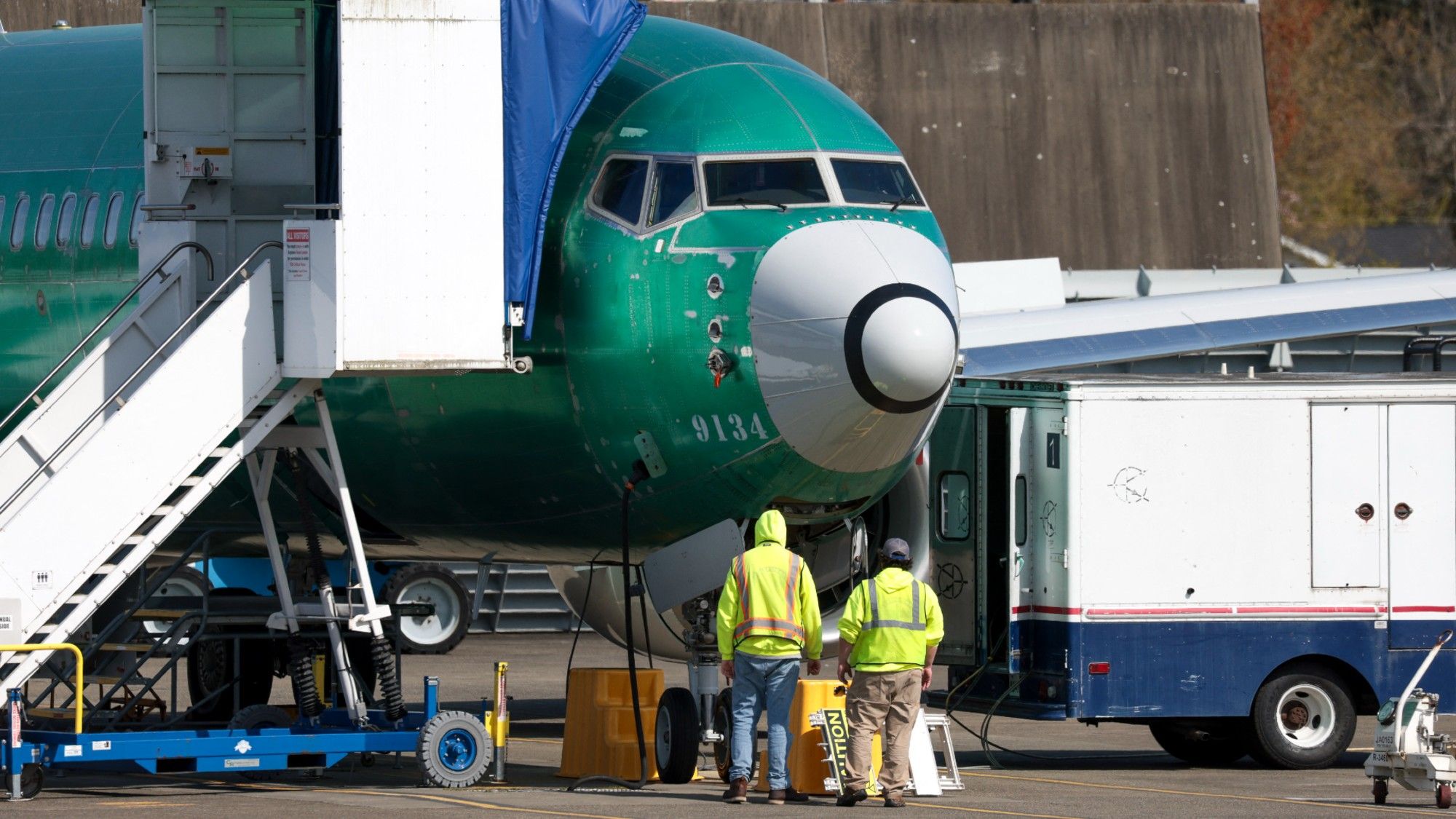By Justin Klawans
Copyright theweek

With airplane manufacturer Boeing under intense scrutiny for the better part of a decade, the Federal Aviation Administration (FAA) has been working to implement safety reforms at the company. But not everybody is satisfied with how the agency is handling things. The FAA has taken major regulatory actions against Boeing following a slew of safety mishaps, including a recently proposed $3.1 million fine, but also announced it will be letting the company have more control in the near future. While some have lauded the FAA’s oversight of Boeing, others are calling the agency’s actions a mere slap on the wrist.
A ‘stamp of approval’
The FAA has been “scaling back obstacles for Boeing to deliver some of its newly produced aircraft to customers, a hopeful sign for the plane maker’s recovery,” said The Wall Street Journal. This includes allowing Boeing to “perform final safety checks on its 737 Max jets,” which the FAA had previously prohibited the company from doing itself following a string of accidents.
Boeing will be allowed to do the same with its 787 Dreamliner jets, and these airworthiness certifications “serve as a stamp of approval affirming that each new plane is designed to approved specifications and is safe to fly,” said The New York Times.
Boeing is clearly “winning more confidence from its regulator after years of safety and manufacturing crises,” said CNBC. The FAA’s decision to ease Boeing’s “regulatory burden is a sign that government officials are satisfied with the company’s progress on improving its manufacturing process,” said the Journal.
‘Too much leeway’
Not everyone is convinced that the FAA’s oversight of Boeing is strict enough. Boeing “got into trouble in the first place because it was given too much leeway on certifying its own work and ended up deceiving authorities,” said Bloomberg. The FAA has said allowing Boeing to certify its own planes is necessary to free up federal regulators, but with a Trump administration “focused on shrinking the federal workforce and cutting regulation, there’s a danger this may again go too far.”
Critics have also suggested the FAA’s penalties to Boeing are not aggressive enough given the company’s wealth. The agency’s proposed $3.1 million fine is “little more than a rounding error for Boeing,” Sen. Richard Blumenthal (D-Conn.) said in a letter to FAA Administrator Bryan Bedford. For Boeing, a fine of this amount is “easily absorbed as the cost of doing business, not a meaningful deterrent to dangerous behavior.” Unless fines “rise to the level that forces the company to invest in real safety reforms, the risks to the flying public will persist.”
Blumenthal, the top Democrat on the Senate’s committee investigating Boeing’s safety issues, is looking for the agency to “explain how it calculated the penalty,” said Reuters. Fines or not, if Boeing’s “production ramp-up goes smoothly, the company will soon be rolling in cash,” said Bloomberg, but if “there’s a snag or another mishap, it would be a serious setback.” The FAA “needs to take off the leash at some point, but perhaps it still needs to be held tight during this initial effort to boost production.”



